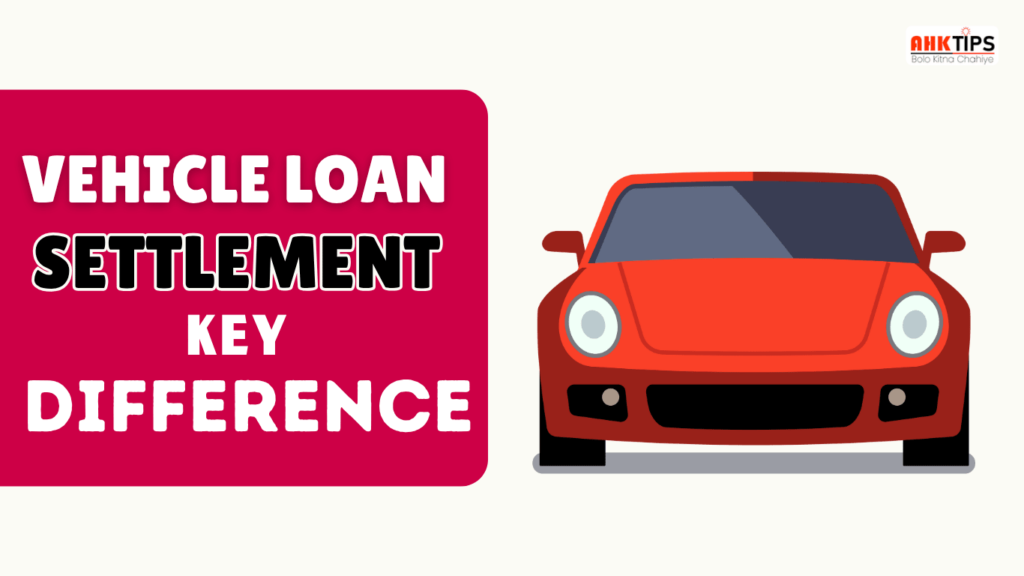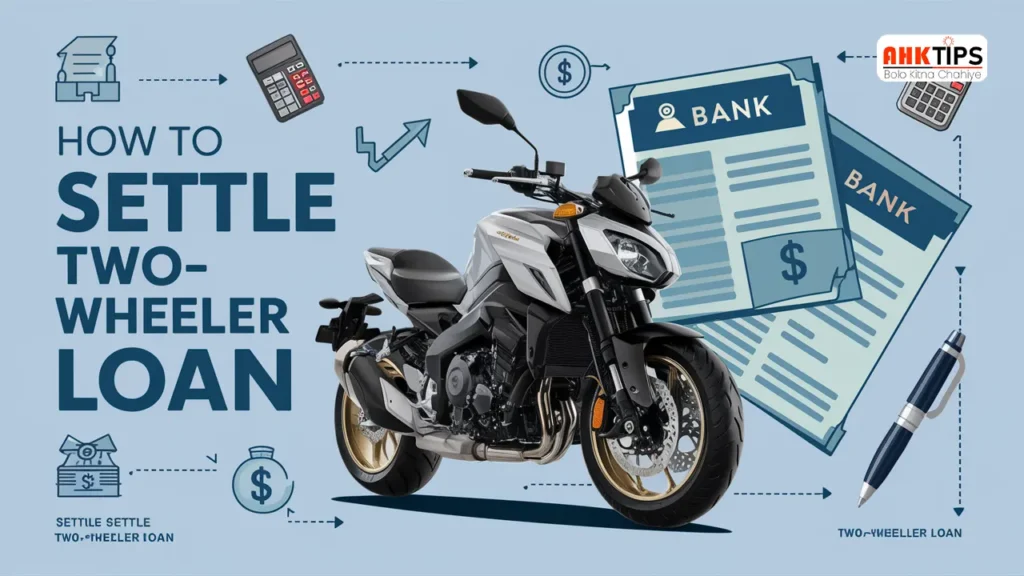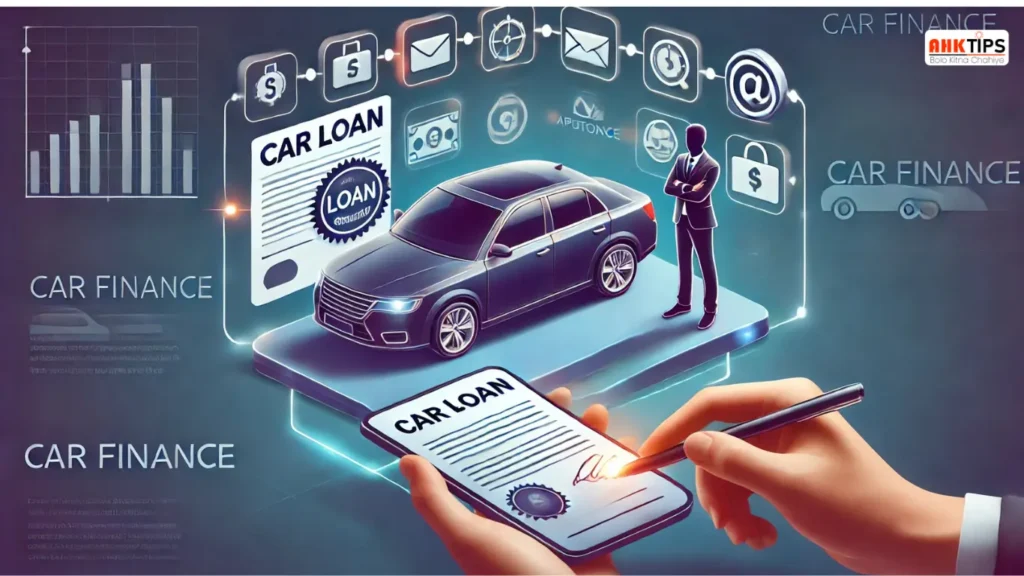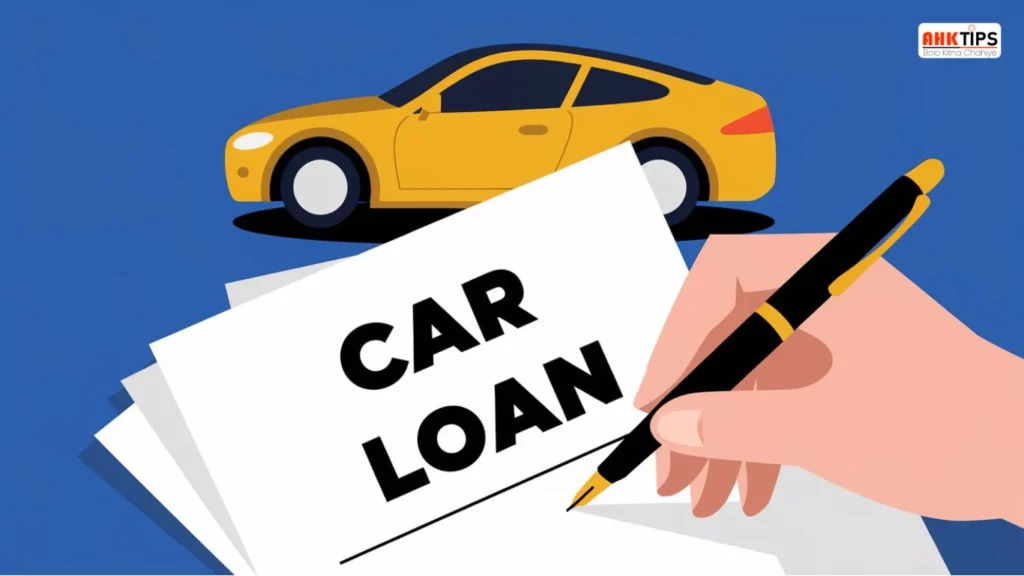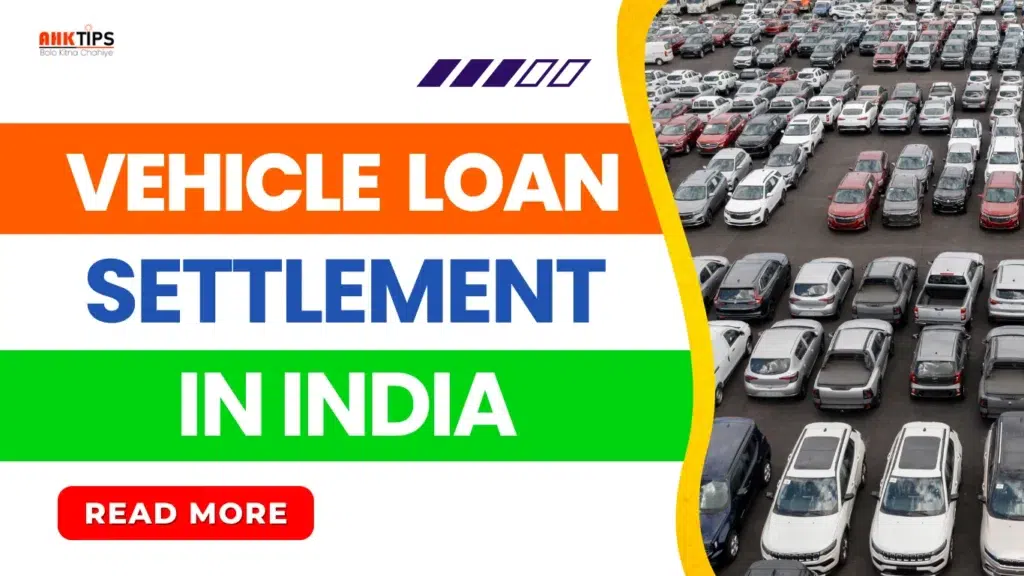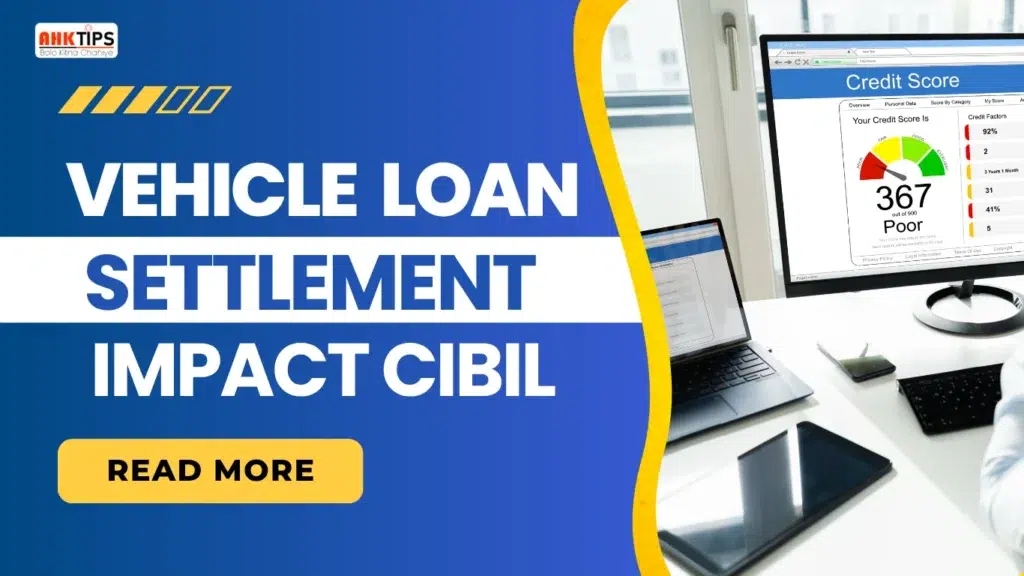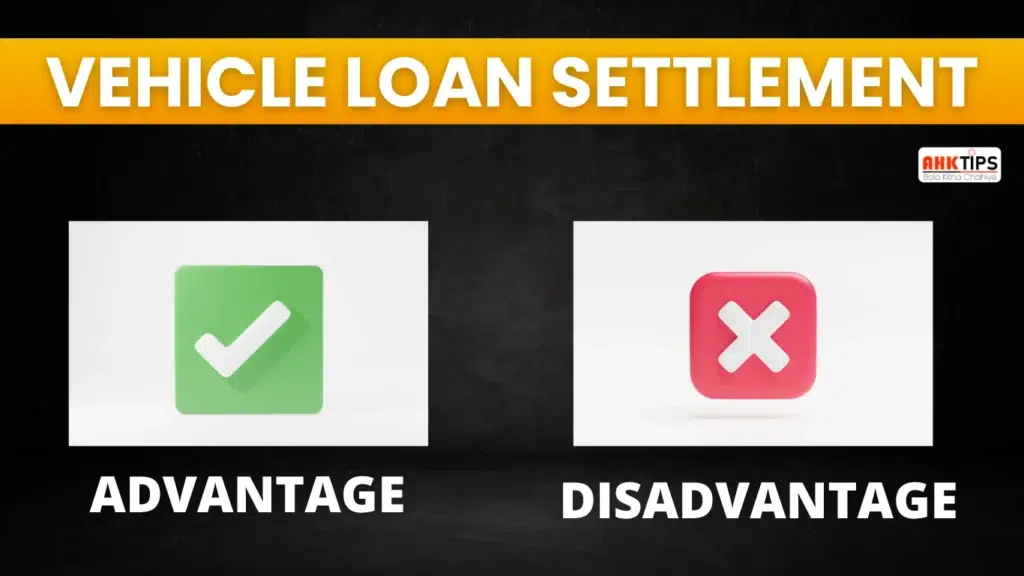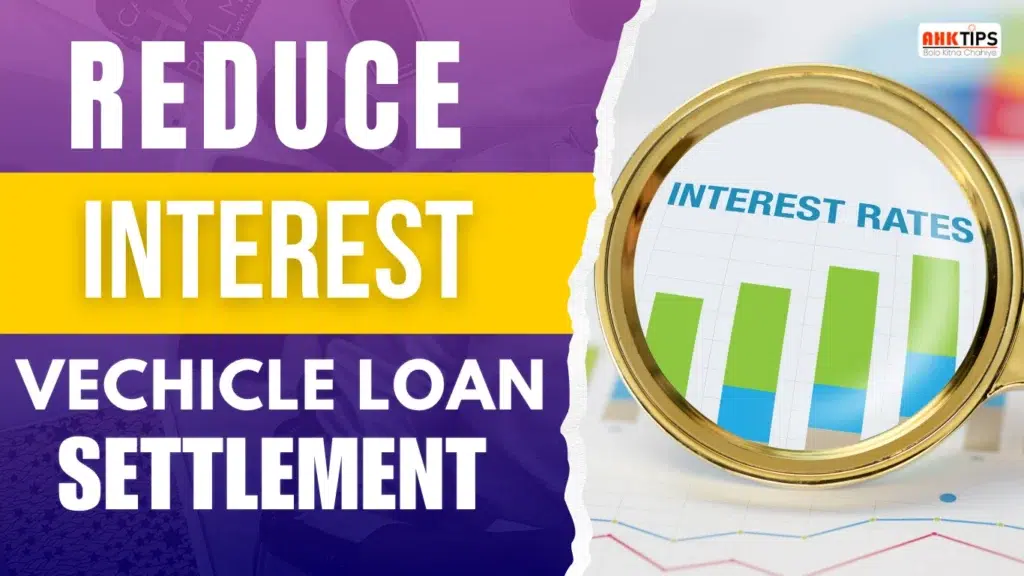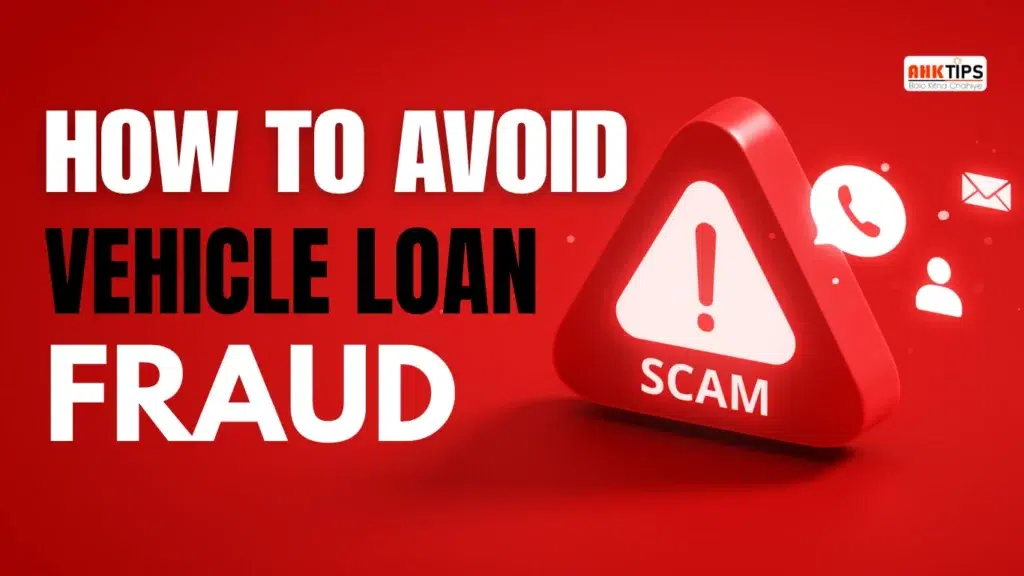Summary
Settling your motor vehicle loan simply means closing it out early, either by paying a full payoff or negotiating that your lender can accept a lesser amount due to your financial distress. If you are struggling with repayments, settling your loan may seem like a positive option, but you must understand the process and all it involves. Loan settlement includes negotiation, paperwork and awareness of how it would affect your credit report or score. If settlement is done properly, it could be a good option because it can help you avoid repossession, decrease some of your debt stress and free you from your loan obligations. However, it will impact part of your credit history, so this is why you should consider the pros and cons carefully. This guide will explain all the details, from reviewing your loan agreement to your last payment, and including the difference between settlement.
Introduction
This process means that you can settle vehicle loan with the lender for an early closure of the loan in whole or a limited amount if you have financial difficulties. What you will need to do at the start is read your loan agreement, call the lender and agree on a settlement amount. You will need to supply copies of documentation such as identification, proof of income, and all financial details. You will pay the agreed amount on approval, request a No Dues Certificate and request ownership of the vehicle to be transferred to your name. Just be aware that repayment of a loan will have a possibility of impacting your credit. Nevertheless, it saves you from repossession and de-stresses the debt burden. Refinancing is also an option available if you have good credit. Settlement comes into play when facing difficulty in paying back, whereas refinancing becomes more effective in reducing monthly payments.
How to Successfully Settle Your Vehicle Loan: Step-by-Step Guide
If you are having financial problems or wish to pay off your loan earlier than planned, settling your auto loan might be a difficult but required action. Understanding all the stages involved is crucial since the process of settling the auto loan lets you close the loan by negotiating with the lender. This tutorial will walk you through the whole auto loan settlement procedure, covering important legal issues, what to do, and what paperwork you need.
Understanding the Vehicle Loan Settlement Process
When you pay off your automobile loan, you are effectively negotiating with the lender to pay off the remaining loan balance, often at a smaller sum. If you are having financial difficulties, this could help, but it is vital to be aware that loan settlement may have legal as well as financial ramifications. Your arrangement with the lender will determine whether you have to pay out the whole sum, including any accrued interest and penalties, or whether you may work out a partial settlement.
Steps to Settle Your Vehicle Loan
Review Your Loan Agreement
Review the conditions of your loan agreement very thoroughly before starting the settlement process. Know the outstanding debt, interest, and any early settlement fees or penalties. This will help you to see your debt and whether early settlement is covered by any terms.
Contact the Lender
Contacting your lender comes first in the process of settling the automobile loan. Say you want to pay back the loan and ask for the precise settlement figure. Should you pay off the loan in whole or in a lump sum, lenders could provide you with a discounted settlement value. Effective negotiations help to guarantee that you are shown the best terms available.
Negotiate a Settlement Amount
Should you be haggling for a smaller payment, be ready to make a case. If you can show financial difficulty—job loss, medical difficulties, or other unanticipated events—lenders usually provide a settlement reduction. Clearly state your circumstances, then also be realistic. The lender might consent to a smaller overall loan amount, but they might not be open to a notable cut.
Required Documents for Vehicle Loan Settlement
You will have to provide the lender with several documents to start the settlement process. Depending on your lender’s policies, they could differ; usually, you will need :
Identity Proof of Proof
This covers government-issued ID cards such as a driver’s license or passport. During the settlement process, this lets the lender verify your identification.
Proof of Income or Financial Hardship
Should financial difficulty cause a lower settlement amount, be ready to offer documentation. This could call for pay stubs, recent bank statements, or an employment letter. Lenders may occasionally request paperwork proving your medical bills or outstanding debt.
Loan Details
Give the lender all information about your present loan, including the loan agreement, outstanding balance, and payment history. This will enable them to make a precise settlement offer computation.
Settlement Offer
Show proof of the money accessible to close the loan if you have already paid a partial amount to present as a settlement.
Legal Considerations During the Settlement Process
Impact on Credit Score
Paying off a vehicle loan could lower your credit score, particularly if you are negotiating a smaller settlement value. It is still better than loan default, though. Before you start, you should know how a settlement will impact your credit. Inquire of the lender whether the settlement will show on your credit report as “paid in full” or “settled,” as this may impact future credit prospects.
No Legal Obligation to Settle
Understanding that settling your vehicle loan is not required is crucial. Lenders have no duty to accept your offer of settlement. Should you be unable to agree on a reasonable settlement, you will have to keep paying until the loan is paid off.
Written Checking of Resettlement
Once the details of the settlement have been decided upon, make sure everything is recorded. The settlement agreement ought to contain the payment terms, the whole amount to be paid, and the schedule of settlement. This paperwork will prove your compliance and that the loan has been paid off.
Completing the Vehicle Loan Settlement
Make the Payment
Make sure you pay the loan right away once the lender has approved the settlement figure. The terms would determine whether the lender requests a series of payments or a flat sum. To prevent any issues, be sure the payment is done in line with the settlement agreement.
Obtain a “No Dues” Certificate
Ask the lender for a “No Dues” certificate following loan settlement. This official paperwork attests to the complete payment of the loan and your absence of outstanding debt. Clearing the loan off your credit record depends on this paperwork.
Transfer of Vehicle Ownership
Should you have settled the loan, the lender usually will assign the ownership of the car to you. Make sure all records on the ownership of the car, including insurance and the Registration Certificate (RC), show that you now own the vehicle outright.
After the Settlement
After your auto loan is paid off, you should check your credit report to be sure the settlement is shown correctly. Save a copy of all settlement-related records in case you should consult them later on.
Navigating the vehicle loan settlement procedure calls for careful preparation, negotiating, and knowledge of your financial circumstances. Following the above-mentioned guidelines will help you to properly pay off your vehicle loan and minimise the financial impact. Always be honest with your lender; if necessary, get legal counsel; and make sure all the documentation is finished accurately.
Vehicle Loan Settlement vs Refinancing: What’s the Difference?
Two widely used terms about a vehicle loan are loan refinancing and loan settlement. Though they sound identical, these choices have different uses and their benefits and drawbacks.
What is Vehicle Loan Settlement?
Vehicle loan settlement is the process of, usually at a lower rate, paying off your vehicle loan earlier than scheduled by agreement with the lender. Usually, this choice is accessible if you find it difficult to pay monthly instalments or are in financial crisis.
Negotiating with your lender in a settlement agreement might help you lower the overall debt. Sometimes the lender will agree to take a lump sum payment less than the entire outstanding total, therefore relieving the obligation and closing the loan.
Pros of Loan Settlement:
Reduced Debt: The most important advantage of a loan settlement is the opportunity to lower your overall debt.
Quick Resolution: Paying down the loan will enable you to avoid the long-term load and quickly clear the debt.
Avoiding Foreclosure: Paying off your loan will help you avoid being in danger of repossession.
Cons of Loan Settlement:
Settlement of a loan for less than the whole amount will harm your credit score, thus future credit applications will be more difficult.
Lender’s Discretion: Not all lenders would agree to a settlement; those that do could have particular terms or restrictions.
Some lenders impose costs for handling settlements, which could increase your financial load.
What is Vehicle Loan Refinancing?
Conversely, loan refinancing is obtaining a new loan to pay off your current one. Along with a longer term or a different repayment schedule, this new loan might include a reduced interest rate. Either by lowering monthly payments or by cutting the total interest paid over the course of the loan, refinancing aims to improve the loan terms.
For borrowers who wish to take advantage of better loan terms—whether for lower payments or improved interest rates—refinancing is usually a sensible choice even if they are in good standing with their present loan.
Pros of Loan Refinancing:
Lower Interest Rates: Securing a lower interest rate by refinancing could help you save money over time.
Lower Monthly Payments: Refinancing, with a longer loan term or a lowered interest rate, might cut your monthly payments, therefore improving the loan’s affordable nature.
Improved Terms: Refinancing allows you to change loan terms to more fit your financial circumstances.
Cons of Loan Refinancing:
Costs: Certain refinancing choices may counteract the savings from a reduced interest rate by including costs.
Extended Loan Term: Although smaller monthly payments may appeal, they could also indicate a longer payback term, which would cause overall interest payments to be higher.
Not for Everyone: If your credit score is low or your auto loan balance is large, refinancing may not be possible or come with bad terms.
When would one choose loan settlement rather than refinancing?
Loan Settlement
Loan settlement can provide a path out if you are unable to make your present vehicle loan instalments. It’s extremely helpful if you’re having financial difficulties or want to prevent more credit harm and are in danger of repossession.
Loan Refinancing
If you wish to minimise your loan load but find yourself in a steady financial situation, refinancing is a preferable option, whether you prolong the loan term to cut monthly payments or find a lower interest rate.
Although both choices can help control a vehicle loan, the best one will depend on your goals and financial situation.
The Impact of Vehicle Loan Settlement on Your Credit Score
Regarding your financial management, knowing how settling a vehicle loan affects your credit score is vital. Many customers settle their vehicle loans due to financial difficulties, but how does this affect their credit score? We’ll go over in this post how paying off a vehicle loan could influence your credit and what actions you might take to reduce any possible negative effects.
What Is Vehicle Loan Settlement?
Settlement of a vehicle loan is the agreement between a borrower and a lender to pay back the loan for less than the entire amount owed. This usually results from a borrower having to find another way to prevent defaulting totally when they are unable to make payments. Although usually with a smaller payment, negotiating a settlement helps the borrower to pay off the loan.
Although paying off your auto loan would seem like a solution, you should be aware of how this choice impacts your credit score.
How Vehicle Loan Settlement Affects Your Credit Score
A vehicle loan is recorded to the credit bureaus as “settled,” or “settled for less than owed,” when it is paid off for less than what is owed. Your credit score could suffer greatly as a result. This is the justification:
Negative Reporting on Credit History
Loan settlements mostly worry you because they show a less-than-perfect result for your credit record. When a lender accepts a settlement, they are saying that the entire debt was not paid. Generally speaking, credit score systems view this as a negative mark. Unlike fully paying off a loan, a settlement implies that you did not satisfy the terms of the arrangement exactly.
Impact on Credit Score
Your present credit score and the details of the settlement will determine the precise decline in your credit score, among other things. Usually, a settlement will lower your credit score—perhaps in the 50 to 100 point range—but the degree will vary.
Long-Term Impact
Although its effect reduces with time, settling a vehicle loan will be on your credit report for up to seven years. Your credit score may first show larger effects, but as time goes on and you create positive credit history, the negative influence will become less important.
Ways to Minimise the Negative Impact of Loan Settlements
Should you find yourself in a position where paying off your auto loan is the wisest course of action, there are strategies to minimise the negative impact on your credit score.
Negotiate a Pay-for-Delete Agreement
Ask the lender whether they will let you have the “settled” designation taken off of your credit report once the loan is paid. This is a “pay-for-delete” scheme. Though not all lenders agree to this, it’s worth trying since it can help to avoid the negative mark lowering your score.
Focus on Paying Off Other Debts
Make sure you keep or enhance other facets of your credit profile to offset the negative impacts of the settlement. Keeping credit card balances low, paying off other debt, and making sure other loans are paid on schedule help to counterbalance the damage resulting from the settlement.
Avoid Additional Late Payments
Although paying back a loan could already harm your credit, extra missed or late payments would only worsen things. Keep current on any other responsibilities you have, since late payments will lower your score much more.
Monitor Your Credit Regularly
Following a settlement, it is vital to keep a close eye on your credit. To be sure the settlement is correctly recorded, review your credit report. Challenge any mistakes or disparities you find with the credit bureaus to have them fixed.
Does Settling a Vehicle Loan Have Any Benefits?
Although your credit score suffers, one important factor is the possible advantages of settling a vehicle loan.
Avoiding Default
By paying back the loan, you escape the more severe penalties of defaulting, including continuous legal action and vehicle repossession. If you cannot make payments and run the risk of losing your car, settling could be your best choice.
Debt Relief
For anyone having financial problems, loan settlement could offer much-needed debt relief. An officially closed loan is a settled loan; thus, you are free from debt-related concerns about payments. This will help you to relax financially and free you to concentrate on reconstructing your financial future.
Can Settling a Loan Be a Smart Financial Move?
If you are having financial difficulties, sometimes the most sensible course of action is to pay off a vehicle loan. Still, you should consider the long-term advantages of debt reduction against the temporary consequences on your credit score. Should missed payments or other problems compromise your credit, a settlement could offer a fresh start free from additional obstacles.
In the end, even if clearing a vehicle loan could lower your credit score, it can also offer a road towards financial recovery. Understanding the consequences and acting to minimise the harm can help you make a better informed choice appropriate for your financial circumstances.
Conclusion
The ability to pay off your vehicle loan settlement allows you some financial relief, especially during tough times. Although it may negatively impact your credit score, it is better than other potential outcomes, such as repossession or defaulting. If you follow the guidelines, investigate your loan terms, negotiate with your lender, present them with all information and documentation required, and pay the loan settlement due, you can successfully pay off the loan.
Don’t miss out on obtaining a No Dues Certificate and reregister your car ownership documents. Always verify your credit report to ensure the settlement is updated properly. If you’re financially stable, then refinancing would be a more long-term viable option. Regardless of whether you opt for settlement or refinancing, ensure it is as on your present condition. Being upfront with your lender and being forward-thinking can smooth the whole process out and make it easier to rebuild your credit after.
FAQ’s
It involves negotiating with the lender to cancel your loan early by paying less owing to financial hardship.
It lowers your score because it’s marked as “settled” instead of “paid in full,” but it’s better than defaulting.
ID, income or hardship documents, loan details, and settlement funds are needed.
Settlement reduces debt under a financial crisis; refinancing lowers EMIs or interest by replacing your loan with a better one.

